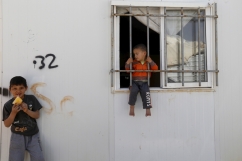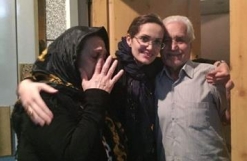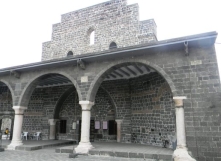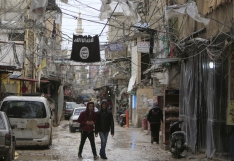Leaders of some of the world's biggest Muslim countries gathered at the annual summit of the Organisation of Islamic Conference (OIC) in Turkey have called on fellow Muslims to criticise themselves and take a stand against terror, which they said is spreading like cancer within Islam.
Speaking to the delegates attending the meeting in Istanbul, Turkish Foreign Minister Mevlüt Çavuşoğlu said "sectarianism and violence'" have already caused the division of the Muslim world and its continued existence ''brings more sorrows among brothers.''
"Muslims are the ones that experience the biggest harm. We cannot accept this situation. We cannot stay silent in front of such a picture,'' stressed Çavuşoğlu, CBN News reports.
"The disease tries to set Muslims against one another. If nothing is done to stop the cancer within Islam, terrorism and radical trends will continue to divide the Islamic community and the result will be more bloodshed,'' he warned.
Egyptian Foreign Minister Sameh Shoukry echoed a similar point urging Muslim nations to ''engage and defeat the terror'' perpetrated in the name of Islam.
"We will continue to fight against forces of darkness and extremism that misrepresent the real teaching of Islam, which is based on tolerance,'' Shoukry said in his opening speech.
He added that Islam needs ''moderation'' and called on OIC members to develop a comprehensive strategy that will defeat terrorism and extremism.
The conference, held from April 10 to 15, seeks to call for a new peace process to end the Israeli-Palestinian conflict. It also tackles such weighty issues as combating extremism within Muslim nations, countering Islamophobia in the rest of the world, and protecting a group of Muslims suffering persecution in Myanmar.
During the summit, some major Arab countries reportedly indicated a change of view on Israel and no longer see the Jewish state as an enemy.
This comes as Kuwaiti media personality Yousuf 'Abd Al-Karim Al-Zinkawi called on all Arab and Muslim states to recognise Israel, "openly and without delay, and to stop calling it "the Zionist entity" or "the Israeli occupation," terms which undermine Israel's legitimacy, according to UnitedwithIsrael.org.
Countries like Qatar and the Sultanate of Oman earlier recognised the call and have since maintain bilateral relations in various domains with Israel, writes Al-Zinkawi in an article published in the Kuwaiti daily Al-Siyassa.
He claimed that the vast majority of the world "effectively supports Israel's existence, and the Arab states have begun to move in that direction and should complete the process.''
The OIC was founded in 1969 and consists of 57 member states. For decades, the organisation has acted as the collective voice of the Muslim world and holds its summit every three years.


















